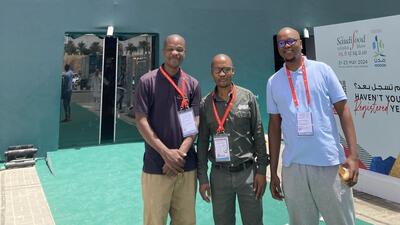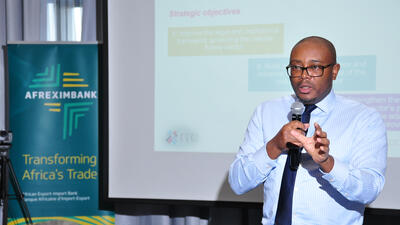Collaboration Tourism: Tourism development in least developed countries - economic significance and policy priorities
Least developed countries (LDCs) continue to play only a minor role in global tourism, receiving a mere 1% of the world’s travel exports. LDCs’ tourism earnings have risen from US$ 3 billion in 2000 to over US$ 10 billion in 2010, increasing an impressive 14% per year on average. Tourism in LDCs has also been less severely affected by the 2008-2009 global crisis than non-service exports, with numbers bouncing back to above pre-crisis figures in 2010.
Despite varying economic reliance on tourism earnings and diverse levels of tourism industry sophistication, common lessons can be learnt from how LDC governments address tourism-related challenges. ‘Tourism and Poverty Reduction Strategies in the Integrated Framework for LDCs’, a discussion paper by the United Nations Development Programme (UNDP) for the Steering Committee on Tourism Development (SCTD) provides insights into the nature of these challenges and the proposed policy actions. The paper analyses 35 Diagnostic Trade Integration Studies (DTIS) prepared under the Enhanced Integrated Framework initiative and validated by LDC governments.
According to the paper, some 90% of LDCs consider tourism development a priority to achieve growth and poverty reduction. LDCs rank transport, tourism-related infrastructure, the investment climate and small and medium enterprise development as the most important tourism-related support areas. Other key areas, such as safety and medical issues, hospitality standards, and the preservation of cultural heritage, receive the least attention. This situation notwithstanding, today most LDCs adopt a holistic view when planning tourism development.
In addition, most priority actions on tourism development in LDCs seem to lean towards improving the policy framework for tourism and less towards strengthening institutional structures. This policy bias reflects the importance that LDC policymakers and tourism stakeholders attach to areas such as tourism policy mainstreaming, facilitating air access, or developing inclusive tourism strategies. Strengthening the private sector through more direct support at the enterprise level was equally perceived as being of high importance for LDCs.
Even though key challenges to developing the tourism sector have been identified with the help of the DTIS, many development partners have in the past paid little attention to tourism as a potential driver of economic growth and poverty reduction in LDCs. As a result, LDCs were left with difficult policy choices. The SCTD was created to tackle these impediments and to improve access to strong institutional partners and technical expertise in the field of tourism. This multi-agency partnership assists LDCs holistically, covering the various aspects of tourism development as well as building local capacity at the policy, institutional and enterprise level. With good economic prospects for tourism in many LDCs and new support partnerships in place, LDCs and their population will soon be in a better position to capitalize on the opportunities offered by international tourism.
The work of the UN Steering Committee
on Tourism Development (SCTD)
The SCTD was launched at the fourth United Nations Least Developed Country Conference (LDC-IV) in Istanbul in May 2011. The SCTD partner agencies (UNWTO, ILO, ITC, UNCTAD, UNDP, UNEP, UNESCO, UNIDO, and the WTO) will provide policymakers in LDCs and developing countries with an overview and description of the specific tourism support services that the agencies aim to deliver in a coordinated, complementary and country-driven fashion. SCTD’s portfolio of services is organized around four pillars (good governance and sustainability, investment, poverty reduction and business linkages and human resources development) and will be published in mid-2011. As a first follow-up activity to LDC-IV, SCTD will host a three-day consultation workshop on tourism project development with LDCs in September 2011.









